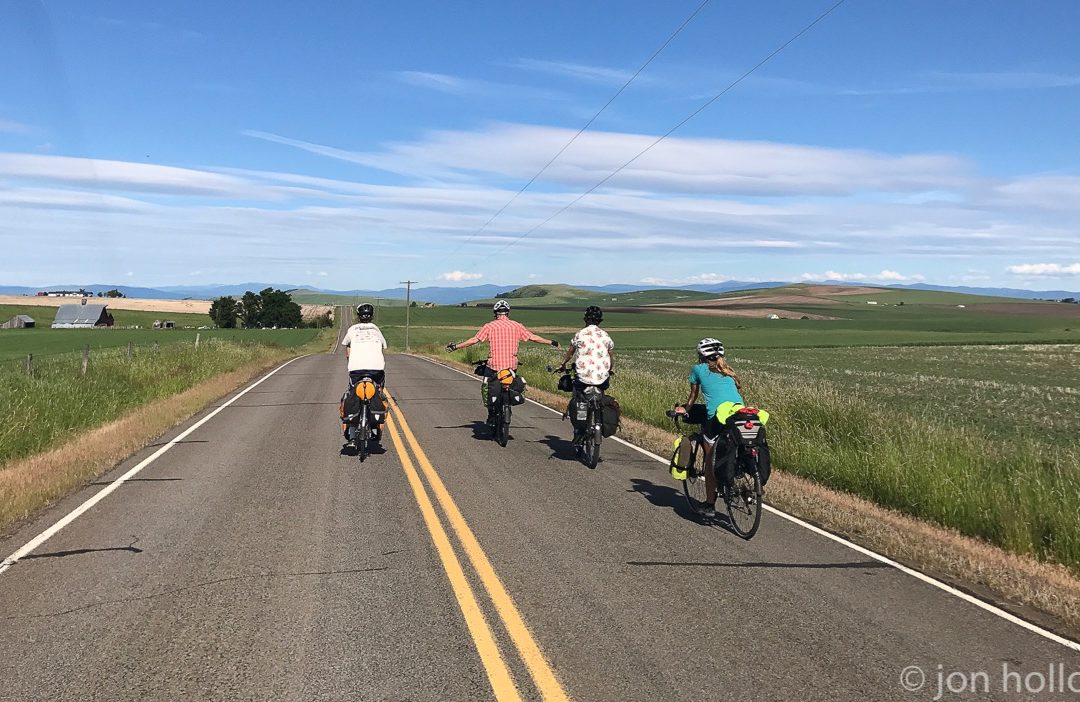The Hardest Part is Starting
Last summer a couple friends and I took our teenage kids and cycled across the United States from Seattle to Portland, Maine, and I can tell you the hardest part wasn’t doing it. The hardest part was getting to the starting line.
The adventure of cycling every day for two months in strange, beautiful places became part of our lifestyle. Doing it became as easy as our everyday lives. The hardest part was convincing ourselves and our kids to do it. Sure, there were some difficult moments on the trip. When we were tired we rested, when we were hungry we ate, and when we were bored we played in the river or went to the movies.
Life is full of unrealized dreams because we don’t know how to get started. Yet it turns out the hill isn’t as steep as it looks, the trail not as long as it looks once we get started. Experienced parkour athletes estimate the height of walls and fences lower than novices. Successful football field goal kickers estimate the upright posts as farther apart than less successful kickers. Golfers who are better at putting often describe the hole as “big as a bucket” or “as big as a basketball hoop.”
It’s not the doing part, it’s the starting that is almost always the hardest. Here are three useful ideas to get started.
Think About What Can Go Right.
What can go wrong is easy. 2:00am awake and wondering if your client will like the project you delivered, what the reviews will be on your most recent presentation, if your kids are exposed to bullying at school, the fact that you haven’t tipped our newspaper delivery guy and probably should, if you am ever going to finish this current book project, and generally if you should be doing something else with my life. That kind of stuff can go on if you let it.
It turns out that luck is a choice, and we can create positive outcomes often by imagining them.
A Little Stress is a Good Thing
I once had an interview with the master entrepreneur and writer Seth Godin. I asked him what does he do when he finds himself in a stressful moment. He said he reminds himself that he is in exactly the right place. What he means, of course, is that when we place ourselves in challenging situations, we have the opportunity to accelerate our learning, become more resilient and gain new skills and insight.
“I think intermittent stressful events are probably what keeps the brain more alert, and you perform better when you are alert.” – Daniela Kaufer, University of California
Find People Who Have Done It
Other people who have been there, done that, are more trust-worthy advisors than your own instincts. But you won’t believe them anyway. In a study entitled, “The Surprising Power of Neighborly Advice,” Dan Gilbert and his colleagues demonstrated repeatedly that the advice of others, who had experienced what the participants were contemplating, was consistently a better predictor of happiness, and positive outcomes. The reason we are likely to reject the advice of others is because we overestimate our uniqueness. We think we are special.
“We don’t believe other people’s experiences can tell us all that much about our own. I think this is an illusion of uniqueness.” – Dan Gilbert, Harvard University
The research suggests we should get over ourselves, give trust and listen thoughtfully to those who have gone before us.
- ____________________________________________________
Shawn Hunter is President and Founder of Mindscaling, a company building beautiful online learning courses based on the work of best-selling authors. My new book Small Acts of Leadership, (Routledge) just released. You can grab a copy now. Have a meeting coming up? Let’s talk.
Twitter: @gshunter
Say hello: email@gshunter.com
Web: www.shawnhunter.com



